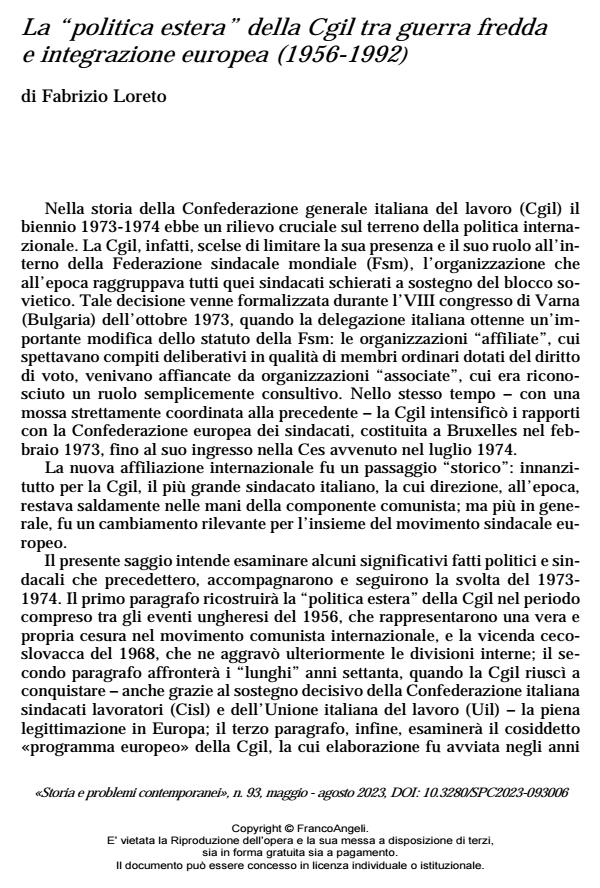The Cgil’s “foreign policy” between the Cold War and European integration (1956-1992)
Journal title STORIA E PROBLEMI CONTEMPORANEI
Author/s Fabrizio Loreto
Publishing Year 2024 Issue 2023/93
Language Italian Pages 16 P. 67-82 File size 200 KB
DOI 10.3280/SPC2024-093006
DOI is like a bar code for intellectual property: to have more infomation
click here
Below, you can see the article first page
If you want to buy this article in PDF format, you can do it, following the instructions to buy download credits

FrancoAngeli is member of Publishers International Linking Association, Inc (PILA), a not-for-profit association which run the CrossRef service enabling links to and from online scholarly content.
The essay reconstructs the evolution of the Cgil’s international policy from the first break with the Ussr in 1956, after the events in Hungary, to the start of the European Union in 1992, after the end of the Cold War. The essay analyses the path of autonomy taken in the 1960s in relation to the World Trade Union Federation; then, the process that led in the 1970s to joining the European Trade Union Confederation, also thanks to the relationship with Cisl and Uil; finally, the Cgil’s European programme, the elaboration of which was started before the fall of the Berlin Wall to reach maturity on the eve of the Maastricht Treaty.
Keywords: Trade Union, Labour, European Integration, Cold War, Trade Union Autonomy, Trade Union Unity
Fabrizio Loreto, La “politica estera” della Cgil tra guerra fredda e integrazione europea (1956-1992) in "STORIA E PROBLEMI CONTEMPORANEI" 93/2023, pp 67-82, DOI: 10.3280/SPC2024-093006